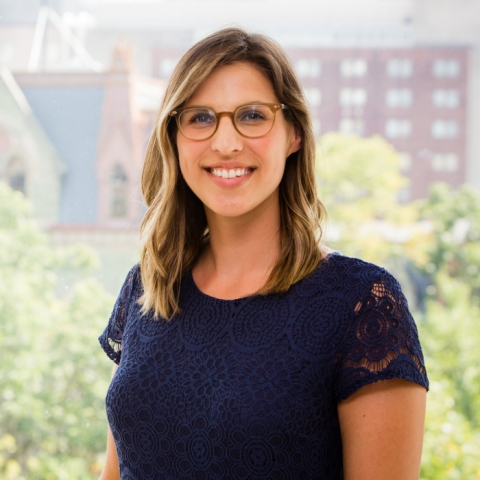Why I went to Grad School
As an undergraduate, I always thought I’d go to graduate school -- I just didn’t know when, or for what. As college graduation approached, I didn’t have a clear idea about what kind of degree I wanted, likely because I was still unclear about what career I wanted to pursue. Though I’d entered college planning on becoming a clinical psychologist, I was leaving with the feeling that I wasn’t right for the field. So, I chose a different path, one that I’d always wondered about, but never considered seriously: teaching.
After two years of teaching in rural Louisiana with Teach for America, I had a much better idea about the direction I hoped my life would take. Equipped with a newfound interest in education and inspired to devote more time and energy to learning about how to ensure better educational outcomes for children everywhere, I accepted a job with the School District of Philadelphia in their Office of Talent. Knowing that I was passionate about education and that teaching was probably not a fit for me in the long term, I hoped to gain experience in a role supporting schools; specifically, I was managing elementary teacher recruitment across the entire District.
I loved my experience working on the Recruitment Team at the District and was affirmed in my decision to pursue a future in education. However, after two years in the Office of Talent, I’d started to wonder if I could have more of an impact. I started to explore the possibility of going to graduate school to study education policy, particularly K-12 policies that perpetuate inequity.
In my experiences both in and outside of the classroom, I gained a deeper understanding of the vast differences in the types of educational experiences that children receive based on their zip code. I felt compelled to commit myself to improve educational outcomes for students who are systematically disadvantaged as a result of structural racism and de facto segregation. However, in my role at the District, I didn’t feel skilled enough to be effective at this work, which is why I knew I needed to go back to school to build practical skills like statistical analysis, program evaluation, research methods, and public management. Thus, I felt ready to start seriously looking at programs, focusing on programs that emphasized practical skills and encouraged students to gain practical experience by taking on internships and fellowships throughout their participation. I found my way, quite quickly, to Penn, which is one of the only institutions in the country that offers a dual graduate degree in Public Administration and Education Policy -- a perfect mix of my interests that would offer me a chance to explore an interest in local government and politics as well as education policy.

